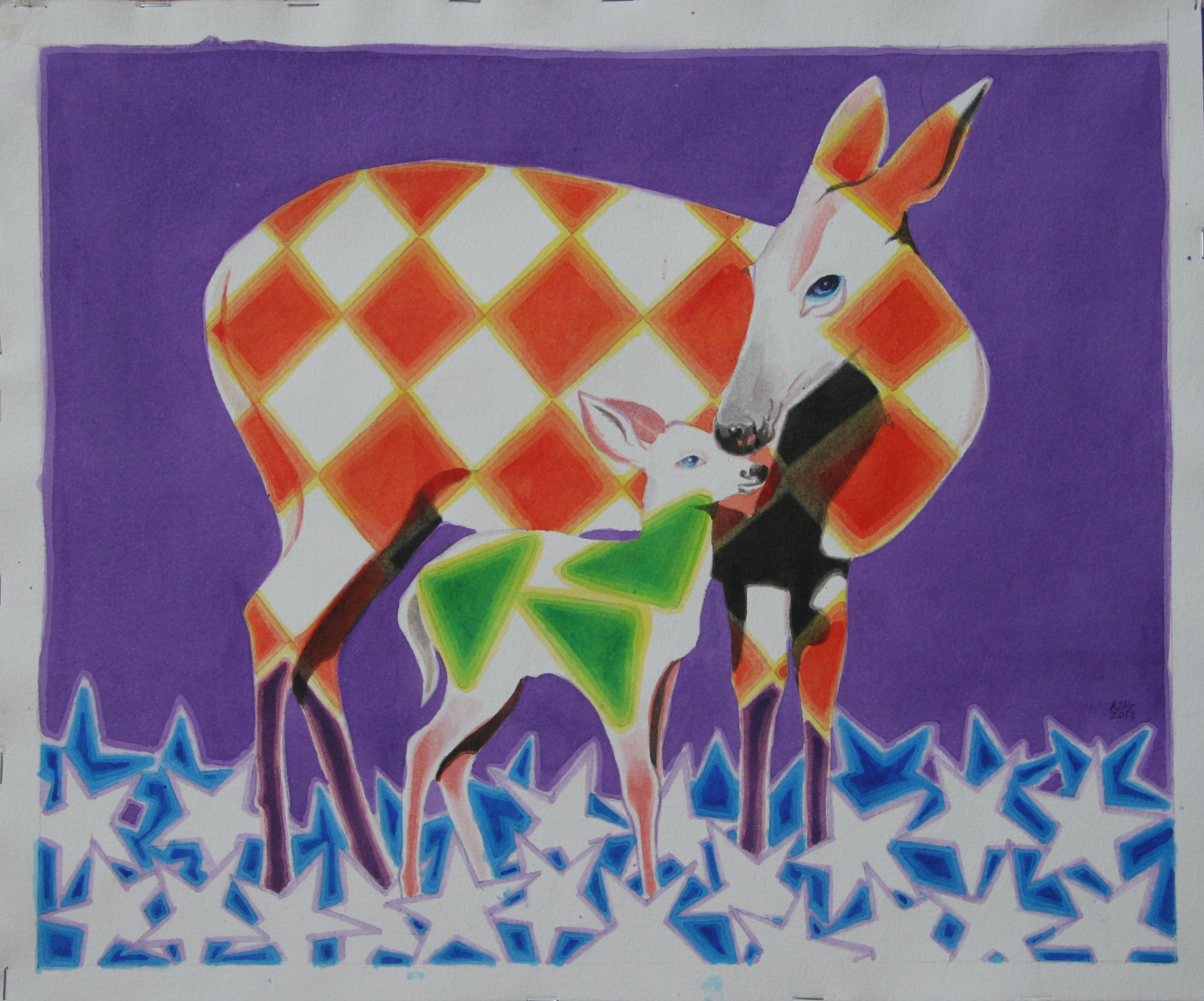The complexity in artist T M Azis’ work comes from simplicity. But look closely and you will find layers of stories, jig-saw patterns that talk about the human condition, confusion, repetitive and self-defeating choices, unspoken angst. And yet an unmistakable air of innocence lingers. Almost as if Azis was saying, “We are all just overgrown children.”
Azis was born in Trichur, Kerala in 1965 and completed his BFA from the College of Fine Arts, Trivandrum in 1987 and his Masters of Fine Art from Jamia Millia Islamia, New Delhi in 1991.
He is one of the most keenly watched contemporary artists in the country today with over 10 solo exhibitions, several group shows in India and abroad. He also won the Kerala Lalit Kala Academy award in 1995.
Azis has over the years, fine-tuned both his technique and what he wants to say. There is virtually no clutter in his compositions and images segue into each other seamlessly.
He says, “It is not about style or technique. As both lend themselves to the changes that you as an artist go through. When you change, they change too.”
The internalisation of various experiences seeps into his carefully composed narratives where a shape, a pattern or even an individual is actually the depiction of a chain of thought.
His work veers between sketches, drawings, photographs, acrylic and oils on paper and canvas. Azis has always been averse to interviews as he feels his works say all that needs to be said about him but we pinned him down for a brief insight into his recent paintings.
There is a lot of innocence in your work..the image of a child has become a repetitive motif..
I paint children as they express a lot without hiding anything. Then of course, they learn to hide. When you become an adult, you have to keep in mind many things. You see a situation, measure its pros and cons, wonder what people will say if you made a genuine comment or an honest statement or cracked a joke. I always watch children and how they play, behave, talk. They are more open and unaffected. If someone makes a comment, “You are childish,”.. it only means that you don’t know what and how to hide.
This balance between reality and abstraction in your recent works, how do you achieve it?
It is all interlinked, be it life or art. The real and the unreal, night and day, the known and the unknown.
How would you describe your evolution as an artist from the time you started?
For me, it is always a new beginning. I approach art as a beginner and try to learn as much as it is possible for me. Everyday, I learn knowingly or unknowingly.
I accept whatever feels right and discard what does not. This sifting and processing has been going on for years and it is all a learning process.
What is the one thing you want to convey..
Be a good human being and from that.. change will spread to different parts of society as well.
You also do a lot of community work..
It is refreshing and you learn more patience and keep away from ego and prejudice.
Reema Moudgil works for The New Indian Express, Bangalore, is the author of Perfect Eight, the editor of Chicken Soup for the Soul-Indian Women, an artist, a former RJ and a mother. She dreams of a cottage of her own that opens to a garden and where she can write more books, paint, listen to music and just be.







 with
with